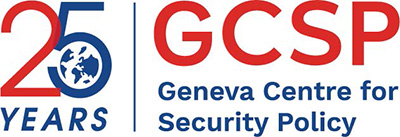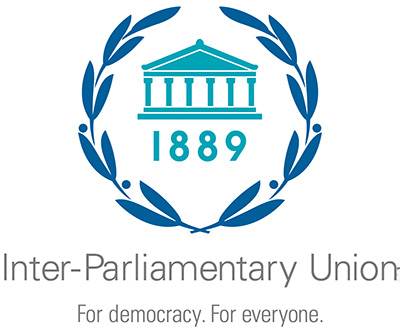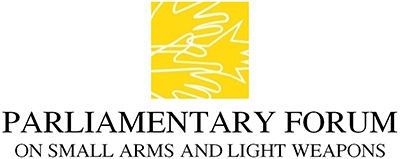The use of chemical and biological weapons in wartime is prohibited under the Geneva Protocol of 1925. This is generally accepted as customary law which is universally binding. The production and possession of these weapons are prohibited by the 1972 Biological Weapons Convention and the 1992 Chemical Weapons Convention which are binding on States Parties. In addition, the UN Security Council has adopted Resolutions 1540 and 2325 which establish obligations on all states to prevent the proliferation of nuclear, biological and chemical weapons to non-State actors. Parliamentarians have a responsibility to ensure implementation of these obligations by their governments.
The COVID-19 pandemic has demonstrated the devastating impact that novel viruses can have on human health and economies, regardless of whether the virus emerges from military, civilian or zoonotic sources (Note: zoonotic source is where the pathogen has jumped from a non-human animal to a human). A strengthening of the BWC could assist in preventing and/or managing future pandemics (See Info box 7: Pandemics and the Biological Weapons Convention).
Relevant international agreements:
- Geneva Protocol of 1925 banning the use of chemical and biological weapons in war
- Biological Weapons Convention (BWC), 1972 (also known as the Biological and Toxin Weapons Convention – BTWC)
- Chemical Weapons Convention (CWC), 1992
- UN Security Council Resolutions 1540 (2004) and 2325 (2016)
Recommendations:
Parliamentarians can:
- Encourage universal ratification of the Biological Weapons Convention and Chemical Weapons Convention;
- Consider and approve comprehensive national implementation legislation for the BWC and CWC (if not already adopted), and undertake parliamentary oversight and reviews of national implementation;
- Make use of existing model legislation and/or expertise to review the adequacy or otherwise of already enacted legislation and modify, as necessary;
- Seek regular briefings/consultations from relevant government ministries on steps being taken to implement and enforce UNSCR 1540, including advice from the ministries on how parliamentarians can further facilitate implementation and enforcement;
- Review and contribute to their governments’ National Reports on UNSCR 1540 Implementation, and avail of the expertise offered by the UNSCR 1540 Committee in this regard.
Examples of good parliamentary practice:
Nepal, Samoa, Central African Republic and Tanzania: Ratification of the BWC
As of September 2020, 183 States have ratified/acceded to the BWC. Between 2015 and 2019, PGA Members Hon. Ramesh Lekhak and former Minister of Foreign Affairs Hon. Prakash Sharan Mahat of Nepal, Hon. Taefu Lemi Taefu, Associate Minister for Natural Resources and Environment of Samoa, Hon. Béatrice Epaye of the Central African Republic and Hon. Jasson Rweikiza of Tanzania, respectively, played decisive roles in mobilization of governmental support leading to ratification of/accession to the BWC by their respective States.
UK Chemical Weapons Act 1996 and destruction of stockpiles
The United Kingdom Parliament adopted the Chemical Weapons Act 1996 to ratify and implement the Chemical Weapons Convention. Under the provisions of the Act, the UK completed the destruction of its stockpiles of chemical weapons in 2007. The Act also establishes a Chemical Weapons Convention UK National Authority to monitor industry and government to ensure adherence to the CWC.
European Parliament Resolution on the BTWC, 2006
On November 16, 2006, the European Parliament adopted a resolution on the Biological and Toxin Weapons Convention (BTWC) in preparation for the 6th Review Conference of the Treaty. The parliament called, among other things, for ‘accession of all States to the BTWC, a declaration that the ban on biological and toxin weapons is a universally binding rule of international law, strengthening of national implementation measures including penal legislation and control over pathogenic micro-organisms and toxins in the framework of the BTWC,’ and ‘strengthening of the treaty including improvement of the mechanisms for verifying compliance by the States Parties.’
Campaign for the Biological Weapons Convention & UN Security Council Resolution 1540
In December 2015, Parliamentarians for Global Action launched a global Campaign for Universality and Implementation of the Biological Weapons Convention (BWC) & Implementation of UN Security Council Resolution 1540 (2004). The campaign has played an important role in supporting parliamentarians in the adoption of legislative measures to ratify the BWC, as well as implement the BWC and UNSCR 1540. Since its inception, PGA members have contributed to the ratification of/accession to the BWC in Angola, Côte d’Ivoire, Guinea, Liberia, Nepal, Samoa, the Central African Republic, Niue and Tanzania. PGA Members in Guinea Bissau, the Central African Republic and Solomon Islands conducted significant outreach paving the way for submission of First National Reports to the UNSCR 1540 Committee in 2018 and 2019.
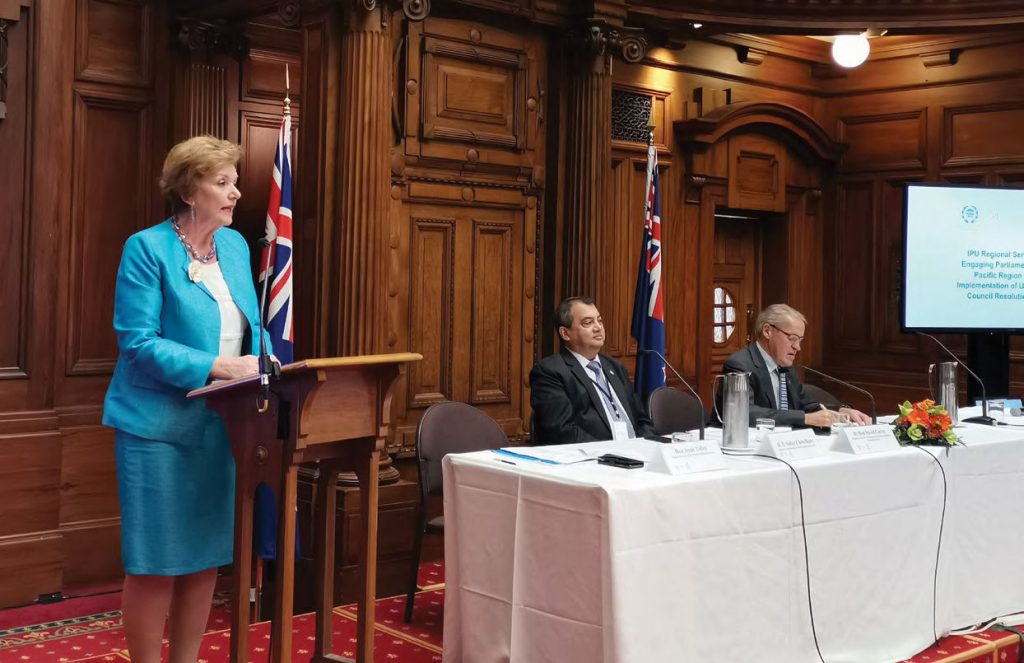
India Chemical Weapons Act 2000: regional confidence building
The Indian Parliament adopted the Chemical Weapons Act 2000 to implement the Chemical Weapons Convention. The adoption of the Chemical Weapons Act established a National Authority on the Chemical Weapons Convention and served as a confidence-building measure that helped to reduce tensions between India and Pakistan. Prior to the adoption of the Act, both countries had fledgling chemical weapons programmes. It is suspected that Pakistan used chemical weapons against Indian soldiers in Siachen in 1987, and that India maintained stockpiles of chemical weapons even after ratifying the treaty in 1996. The Chemical Weapons Act was amended in 2010 to add further restrictions on chemical weapons.
Chile: Parliamentary action on biological and chemical weapons
On July 2, 2020, the Chamber of Deputies of Chile unanimously approved a bill to implement the Biological Weapons Convention and Chemical Weapons Convention into domestic Law. The Bill has subsequently been enacted and will enter into force in February 2021. The bill received substantial support from Hon. Tucapel Jimenez MP, Executive Member of Parliamentarians for Global Action (PGA). Hon. Jimenez organised a number of preparatory activities, including a Regional Latin America Workshop to Promote Universality and Implementation of the BWC and UNSCR 1540 (2004) in Santiago de Chile in May 2017, supported by Global Affairs Canada. Together with a number of colleagues in Parliament, he formally requested the transmission of the Bill to the Chamber of Deputies in 2018 as well as participated substantively in deliberations on possible amendments to the Bill.
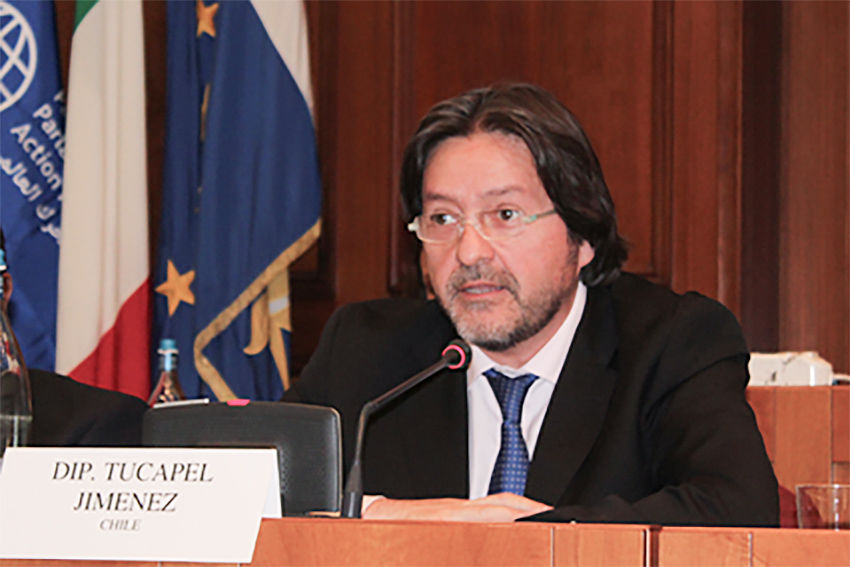
Resources:
- Resolution 1540 fact sheet, produced by the UN 1540 Committee
- A guide to the Chemical Weapons Convention for Parliamentarians, produced by the Organisation for the Prohibition of Chemical Weapons (OPCW)
- Model CWC Implementing Legislation, produced by the OPCW
- Compendium of national implementation (legislation and other measures), produced by the OPCW
- Parliamentary Handbook To Promote International Legislative Frameworks Addressing the Threats Posed by Weapons of Mass Destruction & Promotion of Bio-Risk Management Best Practices produced by Parliamentarians for Global Action, also available in Arabic
- Sample Legislation, Regulatory Guidelines and other tools for implementation of the BWC, VERTIC
- IPU Resolution: Importance of the non-proliferation of nuclear, chemical and biological weapons of mass destruction and of missiles, including the prevention of their use by terrorists, adopted by the 108th Inter-Parliamentary Union Conference, Santiago de Chile, April 6-11, 2003
- Effective implementation of Resolution 1540 in Africa: opportunities for parliaments, published IPU 2016, available online in English and French
- Engaging parliaments of the Pacific region in the implementation of UN Security Council Resolution 1540, published by IPU 2020, available online in English and French

